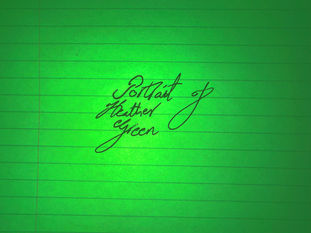
Mdou Moctar - Tears of Injustice
While Mdou Moctar were on their US tour in 2023, the president of Niger, Mohamed Bazoum, was overthrown by a military coup and the nation’s borders were shut, leaving the band stranded and unable to return home. Responding to the crippled state of Niger and the disunity across Africa, the band released Funeral for Justice in May of that year. A napalm strike pressed on wax, the record explodes with pyrotechnic guitar lines, rocksteady rhythm, and impassioned anti-colonial lyrics. But that’s not the album we’re talking about today…
Tears of Injustice is an acoustic re-recording of Funeral, which the band undertook just two days after closing off their 2023 tour. Tears is a different, more subdued expression of the sound and message of Funeral. Where the blistering fast drumming and distortion-drenched guitars hit you like a heatwave on Funeral, the songs on Tears sound like a displaced caravan of people listlessly wandering across a twilit desert. The guitars flutter plaintively like sand eddies over the soft, hand-drummed percussion. Without the dense and zapping instrumentation of the previous album, Mdou’s voice has more space to move on Tears; the emotional nuances of the vocal and backing melodies aren’t obscured by wild amplification.
With the outrageous instrumentation stripped back considerably, the album has a tendency to sound a bit samey, especially in its desert folky percussion. What is the desert though, if not featureless monotony? However, Mdou’s vocal melodies introduce enough variation across the tracklist to make this a rewarding listen.
Tracks like “Funeral for Justice” and “Tchinta” carry you softly along upon the wings of weightless rhythm. The highlight of this album is the 8-minute-long “Imouhar”, which shimmers like a mirage in the distance. By the time a restrained electric guitar weaves in and out of the track, things take on a ritual significance. “Takoba” is firmly planted on the ground, allowing the groove to find footing over the uneven floor of this sonic landscape. No longer are we trudging up and down dunes, as the rhythm picks up a bit on “Sousoume Tamacheq”. With spontaneous shifts in rhythm, the track has a determined, skipping quality to it, especially during the middle section that calls back to “Takamba” from the band’s 2019 album Ilana (The Creator). “Imajighen” and “Oh France” have a similar lamenting vibe; the latter interrogates France over its pillaging of Africa while the former pleads for unity among a people under colonial stasis. As the closing track on both albums, “Modern Slaves” is the most pared-back of the bunch. Already a mostly acoustic track on Funeral, with sweeping gusts of electric chords, the Tears version features only guitar, vocals, and barely any percussion. The heart-wrenching tenderness of the vocals and the guitar melody comes through unmediated, like a desperate plea for intervention.
Indeed, Mdou Moctar’s previous records are sprinkled here and there with acoustic ballads. A full album of such material is a brilliant demonstration of the band’s stylistic range. You can tell they’re paying more consideration to this other side of their musicianship. Instead of making his guitar wail, gentle trilling fills the vacuum left by effects-drenched shredding.
Where Funeral for Justice is a blasted expression of fury and outrage, Tears of Injustice rolls all that indignation back to reveal the grief and numbness fuelling that rage.








